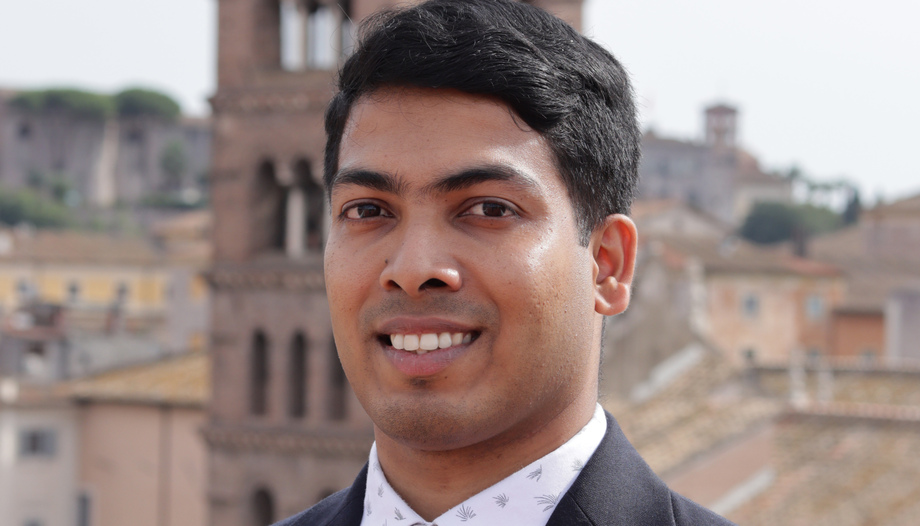Melwin Thurackal Jaison is a native of Thalassery, one of the dioceses in the Kerala area of India. He was born into a Catholic family, where common prayer was a matter of course and where his vocation was a joy.
This young Indian recalls the evenings when his mother would encourage Melwin and his four siblings to pray the Rosary as a family.
Kerala is one of the areas where there are more Catholics in India, a reality that Melwin himself underlines: "Thanks to the Catholic missionaries who dedicated their entire lives, the region where I live, Kerala, is more Catholic than any other state in India."
He is now in Rome, studying to become a priest, thanks to a scholarship from the CARF Foundation.
How did you discover your priestly vocation?
-I believe that the call to the priesthood is always an invitation to "be together".
My family, friends and everyone around me helped me in one way or another to discern my calling.
To concretize this expression I say of "being together", I like to think of school days, when I played in the school volleyball team. I was a good player and we used to organize matches as clubs.
After finishing my high school studies I was faced with the decision to choose between volleyball as a career or the beautiful, silent but burning desire to become a Catholic priest.
The moment of silence and reflection and the inspiring witness of the lives of the priests I came to know personally illuminated the path I was to follow.
Now I continue to play volleyball with my friends here. With all my heart, I can affirm that following Jesus does not deny the beauty of life.
You were born into a Catholic family, how did they welcome your vocation?
-My family was traditionally Catholic. When I first told them that I would love to become a priest, my parents were thrilled. Their simple faith made them rejoice.
My siblings were a bit sad at first, although later they also welcomed my decision.
How do you see your future in a country with such religious pluralism as India?
-Cultural pluralism has always been the main feature of India.
In the future, the hope of the Church in India is the model brought by Saint Mother Teresa of Calcutta.
India continues to need priests and religious who are willing to sacrifice themselves. His life and selfless service to the people of India bore eternal fruit in accordance with the message of Christ, namely mercy.
St. Teresa of Calcutta has always inspired me, as St. Paul exclaims: "It is not that I have already attained it or that it is already perfect: I pursue it, to see if I may attain it as I have been attained by Christ." (Phil 3:12).
What do you think are the main aspects of your formation for the priesthood?
-The priest is, in the first place, a human being. The first formation necessary in these times is a human formation. And, as Pope Francis affirms, to prepare us to "to be the face of mercy"..
I also think that a priest should be open to everything, to the suggestions of others, to the advances of science and culture. Without forgetting spiritual and pastoral formation.
In what ways is it enriching for a young person like you to be able to study in Rome, in a universal environment?
-Being at the heart of the Church to study theology demands from me both a sense of responsibility and gratitude.
I am here because of the prayers and service that many benefactors have given to the Church and to me. It is always exciting to be here in an international community.
I remember the words of an affectionate priest who, on the day I was leaving for Rome, said to me: "I am very happy that you get to spend the best days of your life in the best place in the world."
Everything I gain here will be reflected in my ministry as a priest.
I am also grateful to the CARF Foundation for its service in supporting me and other seminarians around the world. n









